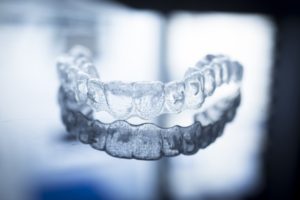Eat Calcium-Rich Foods:
Ensuring a diet abundant in calcium is a fundamental step towards strengthening your teeth. Calcium is a vital mineral that plays a key role in fortifying tooth enamel, the protective outer layer of the teeth. Incorporating dairy products such as milk, cheese, and yogurt into your meals provides a rich source of calcium. Leafy green vegetables like kale and broccoli, as well as almonds and fortified plant-based milk alternatives, are excellent non-dairy options for those with dietary preferences. By prioritizing calcium-rich foods, you contribute to the mineralization process that promotes strong, resilient teeth, fostering a foundation for long-term oral health.
Drink Water Instead of Soda or Juice:
Opting for water over soda or juice is a simple yet impactful choice for maintaining both the strength and appearance of your teeth. Water serves as a natural cleanser, helping to rinse away harmful acids, sugars, and food particles that can contribute to enamel erosion and tooth decay. Unlike sugary beverages, water does not contain acids or additives that may compromise dental health. By staying hydrated with water throughout the day, you not only promote a well-hydrated body but also support your oral health. This conscious decision not only aids in preventing cavities but also reduces the risk of staining, contributing to a brighter and healthier smile. Making water your beverage of choice is a refreshing and effective way to safeguard your teeth and promote your overall well-being.
Brush with an Enamel-Strengthening Toothpaste:
Choosing the right toothpaste can make a significant difference in fortifying your teeth, and opting for an enamel-strengthening toothpaste is a key decision in your oral care routine. Enamel, the protective outer layer of your teeth, can be susceptible to erosion over time. Enamel-strengthening toothpaste typically contains minerals such as fluoride and calcium, which are essential for remineralizing and fortifying enamel. These toothpaste formulations work to repair and strengthen weakened enamel, providing an extra layer of defense against decay and sensitivity. By incorporating an enamel-strengthening toothpaste into your daily brushing routine, you actively contribute to the longevity and resilience of your teeth, fostering a foundation for enduring oral health.
Reduce Foods and Drinks that Stain Enamel:
Minimizing the consumption of foods and drinks that can stain enamel is a prudent strategy for preserving the natural whiteness and strength of your teeth. Certain beverages, such as coffee, tea, and red wine, along with deeply pigmented foods like berries and sauces, have the potential to discolor tooth enamel over time. Limiting the intake of these staining substances helps prevent extrinsic stains and maintains the aesthetic appeal of your smile. Additionally, incorporating habits like using a straw for colored beverages and promptly rinsing your mouth with water after consuming stain-prone items can further mitigate their impact on enamel. By being mindful of your dietary choices, you not only contribute to the whiteness of your teeth but also play a vital role in safeguarding their overall strength and health.
Eat a Balanced Diet:
Maintaining a balanced diet is a foundational aspect of promoting both the strength and overall health of your teeth. A diet rich in essential nutrients, vitamins, and minerals is crucial for supporting optimal oral well-being. Include a variety of fruits, vegetables, whole grains, lean proteins, and dairy or dairy alternatives in your meals. These food groups provide the necessary nutrients, such as calcium, phosphorus, and vitamin D, which contribute to the mineralization and strength of your teeth. Avoid excessive consumption of sugary snacks and beverages, as they can contribute to tooth decay. By embracing a balanced and nutritious diet, you not only nurture your body but also provide your teeth with the vital elements they need for resilience, ensuring a strong foundation for long-term dental health.
Get Plenty of Fluoride:
Fluoride plays a crucial role in strengthening tooth enamel and preventing tooth decay. Incorporating sources of fluoride into your oral care routine is an effective way to promote the overall strength and health of your teeth. Fluoride is often found in tap water, toothpaste, and some mouthwashes. Drinking fluoridated water, using fluoride toothpaste, and following your dentist's recommendations for additional fluoride treatments can provide your teeth with the necessary protection against acids and bacteria. This mineral helps to remineralize enamel, making it more resistant to decay. By ensuring you get plenty of fluoride, you actively contribute to fortifying your teeth, enhancing their resilience, and maintaining a robust defense against common oral health issues.
Avoid DIY Whitening Remedies:
While the desire for a brighter smile is understandable, it's essential to exercise caution when it comes to do-it-yourself (DIY) whitening remedies. DIY methods often involve abrasive substances or acidic components that, if used incorrectly, can lead to enamel erosion and tooth sensitivity. Baking soda, lemon juice, and charcoal, for instance, may be touted as natural whitening agents, but their abrasive nature can harm tooth enamel over time. Instead of experimenting with unverified remedies, it is advisable to consult with a dental professional for safe and effective whitening options. Professional teeth whitening treatments offered by dentists are tailored to individual needs, ensuring both a brighter smile and the preservation of enamel strength. By steering clear of DIY whitening experiments, you prioritize the long-term health of your teeth while achieving the radiant smile you desire through proven and safe methods.
Don’t Forget About Rest of Your Mouth:
In the quest for strong and healthy teeth, it's crucial not to overlook the comprehensive care of your entire oral cavity. This includes paying dedicated attention to your gums, tongue, and the roof of your mouth. Practicing good oral hygiene extends beyond brushing and flossing your teeth; it involves gentle brushing of your tongue to remove bacteria, cleaning the roof of your mouth, and incorporating gum care into your routine. Healthy gums are the foundation of strong teeth, and neglecting them can lead to gum disease, which, in turn, affects overall oral health. Regular dental check-ups are instrumental in monitoring the condition of your entire mouth, allowing for early detection and intervention if any issues arise. By adopting a holistic approach to oral care, you ensure the well-being of not just your teeth but your entire oral environment, fostering enduring strength and vitality.
Dietary Habits:
Dietary habits play a pivotal role in tooth strength, and excessive consumption of sugary and acidic foods can compromise dental health. These items contribute to enamel erosion and tooth decay, weakening the overall structure of the teeth. Adopting a balanced diet that includes calcium-rich foods, limiting sugary and acidic snacks, and practicing good oral hygiene are essential steps in preserving the strength and resilience of your teeth. Being mindful of your dietary choices not only promotes oral health but also contributes to overall well-being, fostering strong and enduring teeth.
Bruxism (Teeth Grinding):
Bruxism, or teeth grinding, poses a threat to the strength of your teeth by wearing down enamel over time. Often occurring during sleep or due to stress, bruxism can lead to tooth sensitivity, fractures, and a weakened tooth structure. Wearing a custom night guard, managing stress, and practicing relaxation techniques are effective measures to alleviate the impact of bruxism. Regular dental check-ups help identify signs of teeth grinding early on, allowing for timely intervention to preserve the strength and integrity of your teeth. Addressing bruxism promptly not only protects against tooth damage but also contributes to overall oral health.
Dry Mouth:
Dry mouth, or xerostomia, can contribute to weakened teeth as it results in reduced saliva flow. Saliva plays a vital role in neutralizing acids and aiding in the remineralization of enamel. Without sufficient saliva, the oral environment becomes more acidic, increasing the risk of tooth decay and enamel erosion. Causes of dry mouth include medications, medical conditions, and lifestyle factors. Addressing the underlying causes, staying hydrated, and using saliva substitutes can help mitigate the effects of dry mouth, promoting stronger teeth and overall oral health. Regular dental check-ups can also assist in managing and preventing complications associated with dry mouth.
Genetics:
Genetics plays a role in determining the strength of your teeth and your susceptibility to dental issues. Inherited traits influence factors such as enamel thickness, tooth structure, and overall oral health. While genetics can impact dental health, practicing good oral hygiene, adopting preventive measures, and regular dental check-ups are crucial to maintaining strong teeth, even if genetic factors pose potential challenges. Understanding your genetic predispositions allows for a proactive approach to oral care tailored to your unique needs.
Medical Conditions:
Certain medical conditions can impact dental health, with conditions like acid reflux and eating disorders exposing teeth to stomach acid, accelerating enamel erosion. Managing these medical issues and maintaining regular dental check-ups is essential to mitigating their impact on teeth. Addressing underlying health concerns, adopting a balanced diet, and working closely with healthcare professionals contribute to maintaining the strength and well-being of your teeth in the face of medical conditions.
Age:
As we age, natural wear and tear can affect the strength of our teeth, making them more susceptible to decay and fractures. The aging process may lead to a gradual reduction in enamel thickness and overall oral health. Maintaining regular dental check-ups, adopting a proper oral care routine, and addressing age-related concerns promptly contribute to sustaining strong and healthy teeth throughout the aging process.
Lack of Fluoride:
Insufficient fluoride exposure weakens tooth enamel, making teeth more vulnerable to decay. Limited access to fluoridated water or inadequate use of fluoride toothpaste contributes to this deficiency. Combat weakened teeth by incorporating fluoride-rich dental products into your routine and consulting with a dental professional for additional preventive measures. Ensure proper fluoride intake to fortify enamel and promote durable and healthy teeth.
By identifying these factors and addressing them through preventive measures and proactive oral care, you can work towards maintaining strong and resilient teeth throughout your life. Regular dental check-ups provide an opportunity to assess and mitigate these risk factors, ensuring optimal oral health in the long run.
If you're eager to fortify your teeth and improve your overall oral health, look no further than Mathew DDS. Our dedicated team of dental professionals is committed to providing personalized care, offering a range of services designed to strengthen and beautify your smile. From preventive measures to advanced treatments, we prioritize excellence in dental care. Don't hesitate – schedule a visit today to Mathew DDS and take the first step towards achieving a healthier, stronger smile. Our experts are ready to provide tailored advice and cutting-edge treatments to address your unique dental needs. Trust Mathew DDS for a warm and patient-focused experience that prioritizes your dental well-being. Contact us now to book your appointment and embark on a journey to optimal oral health. Your vibrant and resilient smile awaits at Mathew DDS.






